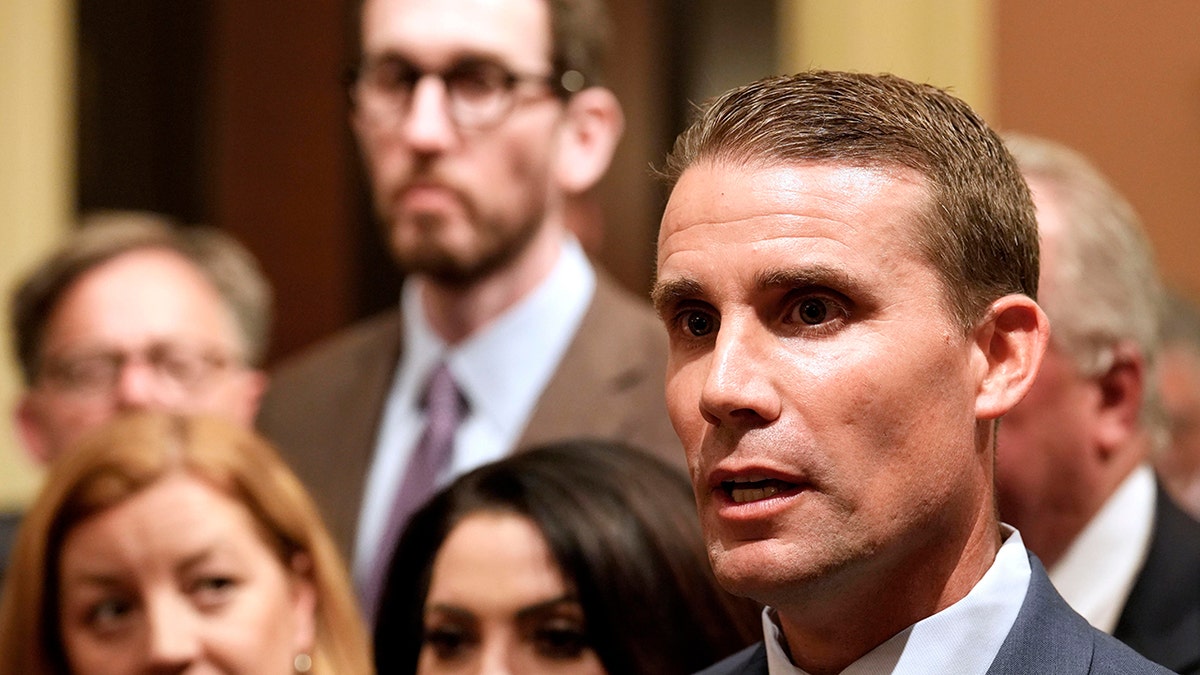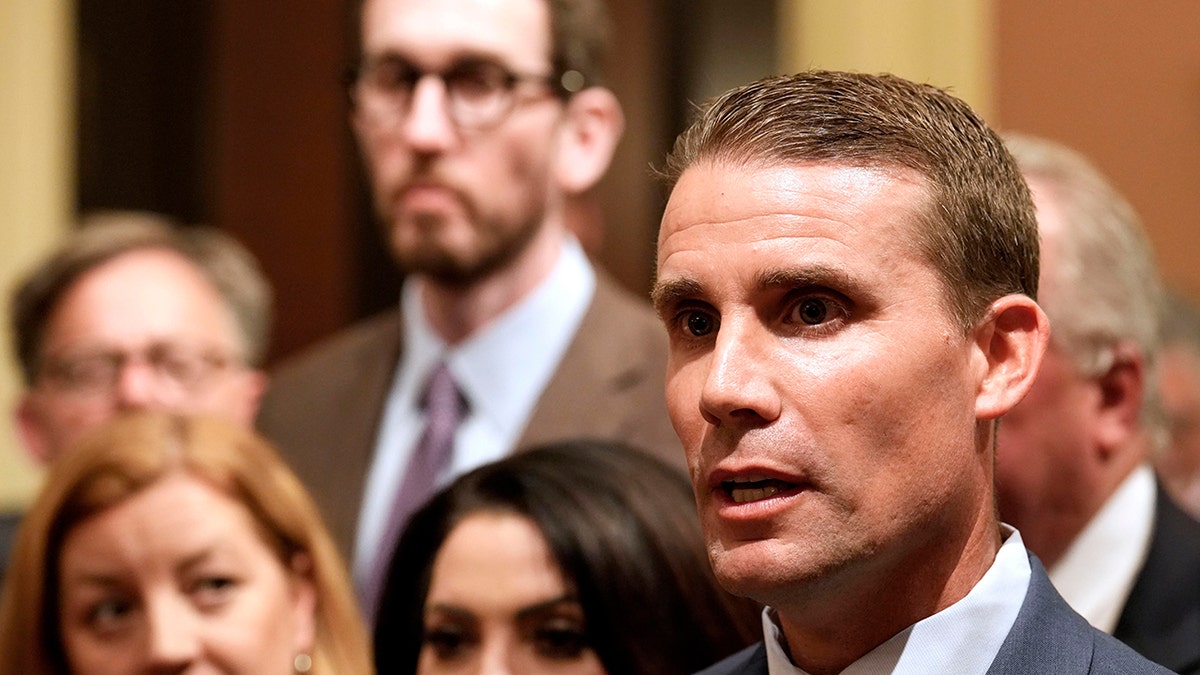
The California Senate approved a bipartisan package of 15 bills Wednesday that would increase penalties for organized crime rings, expand drug court programs and close a legal loophole to make it easier to prosecute auto thefts.
One proposal would require large online marketplaces — like eBay and Amazon — to verify the identities of sellers who make at least $5,000 profit in a year, an attempt to shut down an easy way to sell stolen goods.
“This is not a game,” said Senate President Mike McGuire, a Democrat who represents the North Coast, adding that he hopes to get the bills to Gov. Gavin Newsom’s desk within weeks. “We are working together for safer California, putting aside politics and making sure we do right for our communities.”
It normally takes months for lawmakers to deliver bills to the governor in California, but the commitment to quick actions is driven by a new get-tough-on-crime strategy in an election year that seeks to address the growing fears of voters while preserving progressive policies designed to keep people out of prison.

California state Senator Mike McGuire, D-Healdsburg, right, talks to reporters at the Capitol in Sacramento, Calif., Aug. 28, 2023. California lawmakers on Wednesday, May 22, 2024, advanced more than a dozen bills aimed at cracking down on repeat shoplifters and car thieves, part of a new get-tough-on-crime strategy that seeks to address voter concerns while preserving progressive policies to keep people out of prison. (AP Photo/Rich Pedroncelli)
Large-scale thefts, in which groups of people brazenly rush into stores and take goods in plain sight, have reached a crisis level in the state, though the California Retailers Association said it’s challenging to quantify the issue because many stores don’t share their data.
The Bay Area and Los Angeles saw a steady increase in shoplifting between 2021 and 2022, according to a study of the latest crime data by the Public Policy Institute of California. Across the state, shoplifting rates rose during the same period but were still lower than the pre-pandemic levels in 2019, while commercial burglaries and robberies have become more prevalent in urban counties, according to the study.
Assembly lawmakers also advanced several other retail theft measures Wednesday, including a bill authored by Assembly Speaker Robert Rivas taking aim at professional theft rings. It would expand law enforcement’s authority to combine the value of goods stolen from different victims to impose harsher penalties and arrest people for shoplifting using video footage or witness statements. The measure also would create a new crime for those who sell or return stolen goods and mandate online sellers to maintain records proving the merchandise wasn’t stolen and require some retail businesses to report stolen goods data.
Lawmakers also passed proposals that would crack down on cargo thefts, restore the district attorney’s authority to go after thieves and resellers who operate beyond their jurisdictions and allow retailers to obtain restraining orders against convicted shoplifters.
All the bills now head to the second chamber before they could reach Newsom’s desk in June.
The advancement of a slew of measures further cements Democratic lawmakers’ rejection to growing calls to roll back progressive policies like Proposition 47, a ballot measure approved by 60% of state voters in 2014 that reduced penalties for certain crimes, including thefts of items valued at under $950 and drug possession offenses, from felonies to misdemeanors.
CLICK HERE TO GET THE FOX NEWS APP
Money saved from having fewer people in prison, which totals to $113 million this fiscal year, has gone to local programs to fight recidivism with much success, state officials and advocates said. But the proposition has made it harder to prosecute shoplifters and enabled brazen crime rings, law enforcement officials said. An effort to reform the measure failed in 2020.
As major national stores and local businesses in California say they continue to face rampant theft, a growing number of law enforcement officials and district attorneys, along with Republican and moderate Democratic lawmakers, say California needs to consider all options, including rolling back the measure. The coalition backing the initiative last month submitted more than 900,000 signatures to put it on the November ballot. The signatures are being verified.







